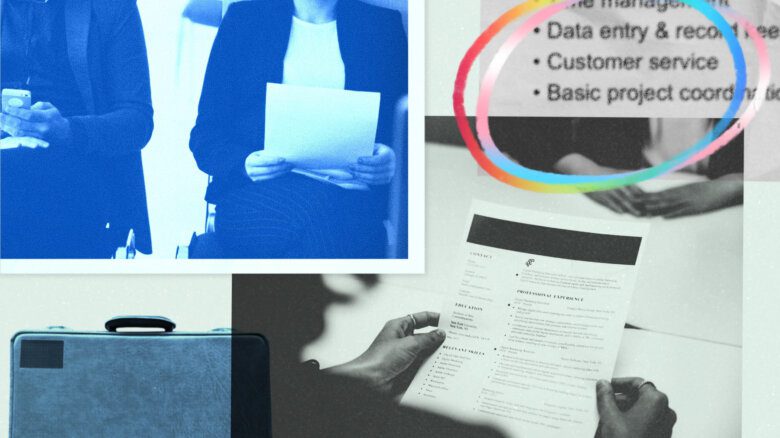Could the government be one step closer to monitoring Canadians’ porn habits? Bill S-210, the Senate bill reintroduced in 2021 from an earlier version in the previous Parliament that would require age verification for anyone in Canada to look at explicit materials online, got a shot in the arm last week as Conservative Party leader Pierre Poilievre expressed support for the legislation. A few hours later, his office clarified to the media that the support was for verification that didn’t include the creation of a digital ID—a tool that could be used to verify one’s identity online. By then, the Liberals had pounced on it, pointing out that for someone who claims that he doesn’t like big government or bureaucracy, Poilievre was keen to create it for online porn. Even Prime Minister Justin Trudeau got in on the claims that this was an endorsement of a digital ID—which is not actually what the bill supports, but is fully intended to drive a wedge into the paranoia of Poilievre’s reactionary base, as they have a tendency to trade in conspiracy theories about such an ID and it being used for mass surveillance or something akin to a Chinese social credit system.
While acknowledging the aims of the bill, the current government has been cool to it, well aware of the logistical nightmare this would be to enforce. Some of the discussion has been around the possibility of porn sites themselves performing the verification somehow, but the notion of showing your driver’s licence to your webcam to access a site is nothing short of an invitation to identity theft, and Trudeau himself has slammed the notion of having “sketchy websites” in other countries taking this information. Companies like Pornhub say they would rather pull out of Canada entirely than deal with this kind of legislation, and they have blocked several U.S. states for their own versions of age-verification legislation, and are instead pushing for device-based verification.
In reality, the bill targets internet service providers, but that’s just as problematic because they’re not equipped to determine what is and is not a site that hosts explicit content, or to judge what does and doesn’t count for the purposes of the legislation, lest they face severe penalties. That’s an invitation for them to be overly broad in blocking websites, and you can guarantee that a lot of innocuous queer and trans content will be swept up in that. Meanwhile, any teenager who knows how to access a VPN will be able to get around the restrictions.
The government is also well aware of the massive privacy implications that this bill would create—and they’re perhaps a little more averse to the Helen Lovejoy impulses of the political right while still saying that they want to protect children, but that this wasn’t the way to go about it. They also briefly hinted that their long-waited online harms legislation would tackle this issue, but when the bill was tabled on Monday, it was clear that it wasn’t included in the bill—only tools to prevent child exploitation online, and for faster and easier removal of child sexual exploitation images that do appear online. Nevertheless, several Liberal MPs did vote for the bill because it was a free vote, given that Senate public bills have the same status as private members’ bills in the House of Commons.
The bill’s sponsor in the House of Commons, MP Karen Vecchio, insisted that they were relying on technology to be the solution for age verification here, but that’s a combination of hand-waving and magical thinking. The language in the bill itself is vague about just what kind of system of age verification should be imposed, but the one that keeps getting brought up is some kind of “facial scanning” technology. This is different from facial recognition in that it doesn’t compare your face to a database of images, but rather uses algorithmic tools that will “estimate” your age, and isn’t supposed to keep records of the faces it scans (but that’s a whole lot of trust in companies who do not deserve it). This is not only another step toward a surveillance state, but it also makes a lot of assumptions about the technology even being viable—we know from other facial recognition technology used for security purposes that it doesn’t do very well when it comes to people of colour, and again, the privacy implications are huge if the companies running this facial scanning are hacked.
As the talk of digital IDs started to circulate, Senator Julie Miville-Dechêne, the bill’s author, put out a press release stating that the intent of the bill is for “trusted third parties” to do the age verification, not the government. That’s also magical thinking, because that creates even more of a privacy nightmare. If not the hand-waving of “technology” of facial scanning, the alternative is that people would go to some sort of service to present their government ID and get some kind of age-verification token that would then allow them to access the content. This again opens up the problems of just who is keeping the records of those age-verification tokens, and what kind of security they have from being hacked. If anything, the satirical website The Beaverton got it right in parodying that this would be an opportunity for a Poilievre-led government to have Loblaws doing the age verification—particularly given how many provincial governments have been turning to Loblaws to do all kinds of things that they should be doing, particularly in the healthcare space.
If there is one bitter irony in all of this is that for Poilievre, who professes that he wants to make Canada the “freest country in the world,” and who has been echoing the moral panic around so-called “parental rights,” has an issue here where it should be parents and not governments who take the lead on this. Nevertheless, we can hope that as this bill goes through the committee process that MPs get the message that, in spite of all of the hand-waving and magical thinking, this bill is unworkable in the real world and a major privacy violation waiting to happen, and that they kill the bill before it reaches a final vote.


 Why you can trust Xtra
Why you can trust Xtra


